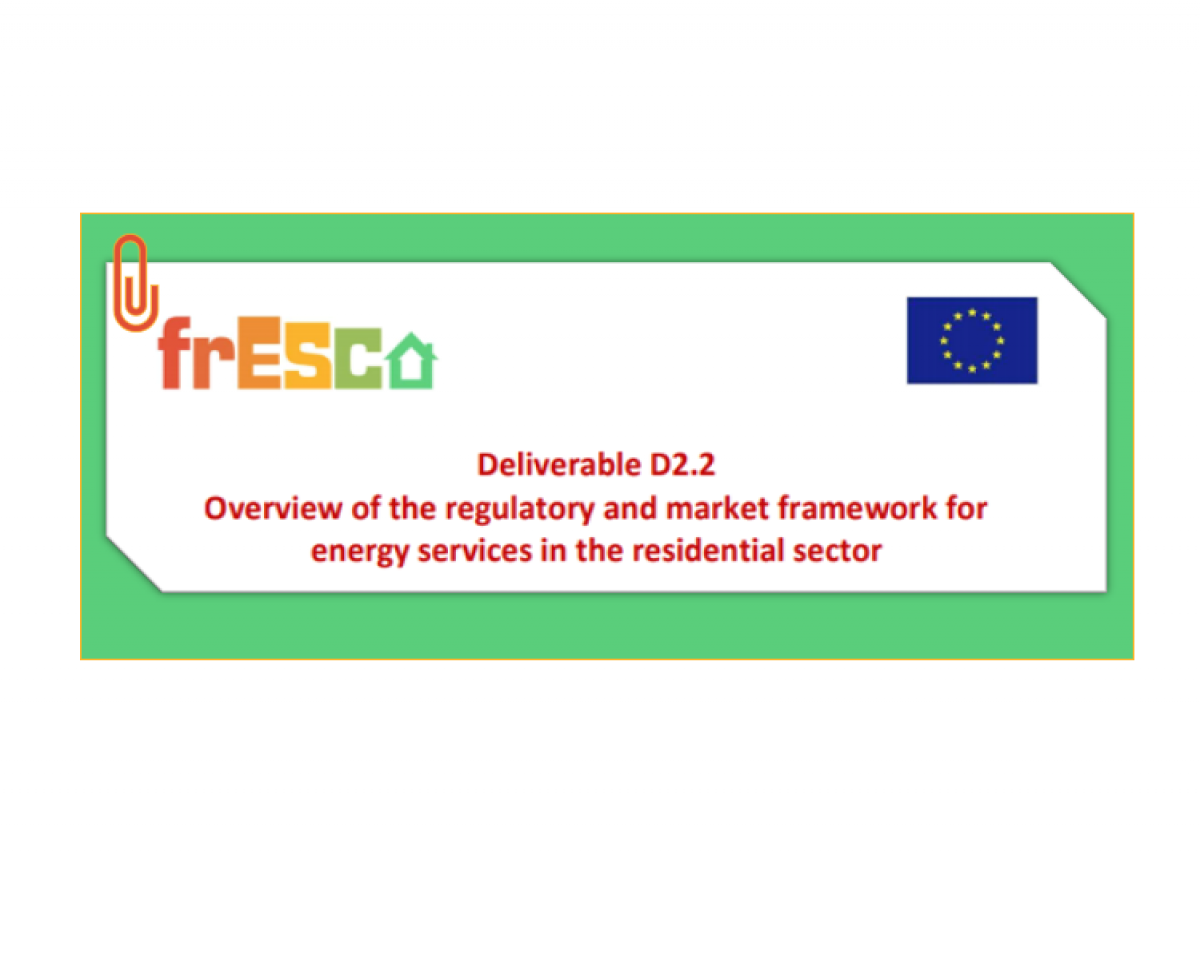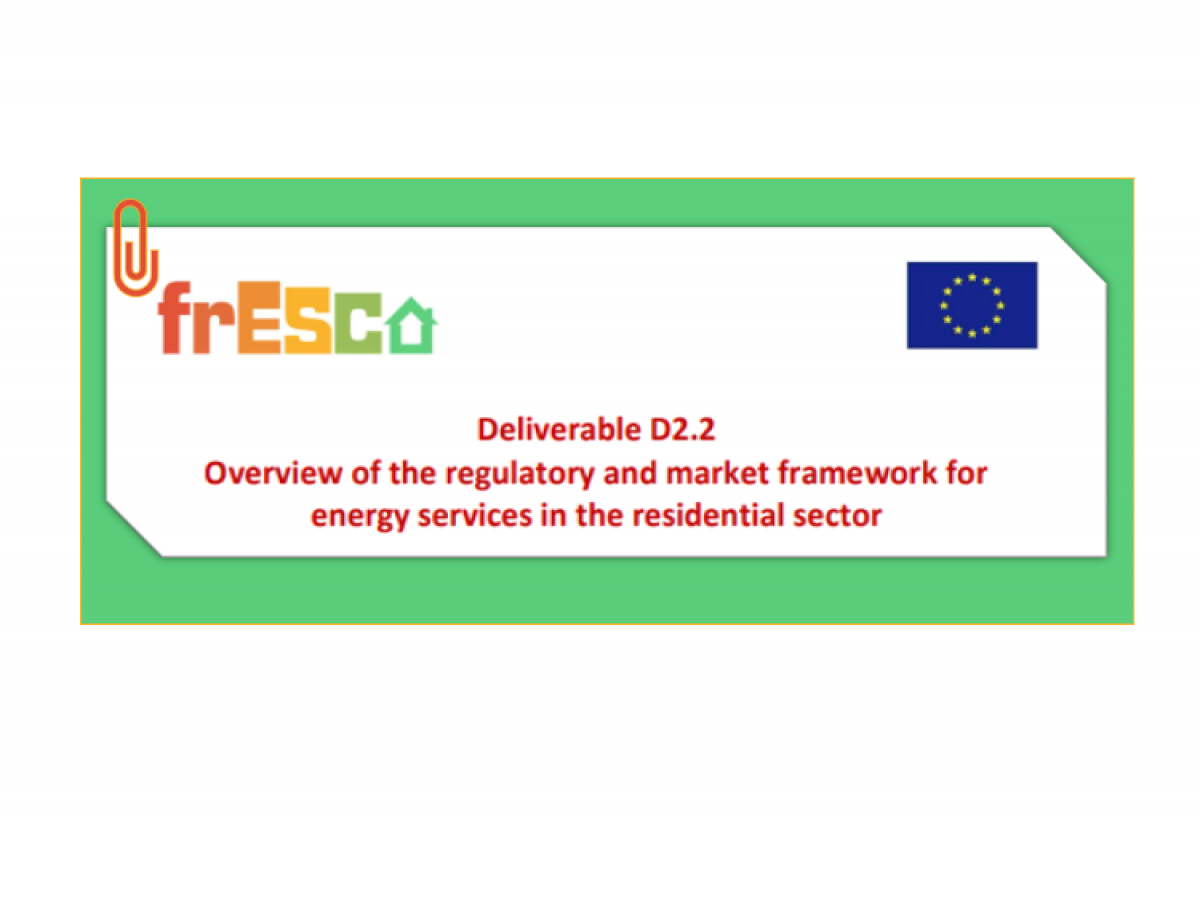Overview of the Regulatory and Market Framework for Energy Services in the Residential Sector
Within the frESCO project a regulatory and market framework analysis was conducted for the energy services in the residential sector.
The main findings are expose in this article addressed to the frESCO community.
The two principal markets where frESCO project activities can make a difference are the energy efficiency market in residential buildings, regulated by directives EU 2018/2002 (energy efficiency) and EU 2019/843 (building energy performance), and the electricity market, ruled by directive EU 2019/943 and EU 2019/944 about the internal common Electricity Market. These directives are still being transposed into national regulations and mark the tendency of both markets in the future to align policies with the ambitious European 2030 and 2050 targets.
The analysis at European and national level aims at identifying the main positive and negative aspects of today’s regulatory framework in relation to frESCO’s intended energy services.
The main important barriers imposed by the current regulatory frameworks in the demo site countries are:
- Flexibility trading is only partially allowed in some countries.
- Aggregation of flexibility is still not allowed in the majority of the EU countries (allowed only in France).
- Difficulty and high cost to obtain real-time readings.
- A multilateral agreement has to be signed between consumers (data owners), DSO (data reader) and ESCOs/aggregators (data consumers) in order to ensure the provision of AI services while ensuring data protection and privacy.
- Self-consumption assets in the domestic sector are still scarce in the four countries analysed in the frESCO project (Greece, Spain, France, Croatia).
- Although the recast directive of Energy Efficiency in Buildings sets ambitious performance targets for new buildings, the economic downturn in 2010 and 2020 has slowed down the building rate in Europe. A higher effort should be paid to refurbish the existing building stock to the new regulation standards, as part of extended ESCO services.
However, there are already a number of positive aspects that play in favour of frESCO targets. Among others:
- Demand response and aggregated can participate in most markets alongside generation in some EU countries, like France, in accordance with the European Energy Directive. It should only be a matter of time before this successful model is implemented in the rest of the European countries.
- The digital meter rollout is ongoing in the European Union. Some countries are already putting in place measures to make real-time consumption accessible to domestic consumers as a powerful decision-making tool.
- The low cost of today’s silicon-based photovoltaic systems and the more friendly regulation for domestic self-consumption easing the grid connection requirements is going to cause a likely burst of the use of this technology for self-consumption in Europe. This equipment enables not only direct savings but an additional source of prosumers’ flexibility that can be elicited and made available at the corresponding marketplace as a clean and alternative energy source or as a straight-forward grid balancing tool.
- The current ambitious European goals and set of Directives affecting Energy Efficiency, Electricity market and Building efficiency already rely on the increasing use of renewable assets and the participation of the domestic users in Demand-Response schemes. The current NECPs in many countries are already pointing in this direction and should become a reality in a time period of between 1 to 4 years throughout Europe.
- As a measure to revamp the European economy from the COVID-19 slump, an important financial resource is being mobilised by the European Union to act in several critical cross-European issues. One of them is the energy transition and digital development. It is expected that financial resources for these two sectors will be made available from 2022 on. frESCO solutions target both sectors, which could facilitate a wider scope and extension of the frESCO solutions in a near future.
To conclude, although some of frESCO’s services may not be fully deployed like flexibility trading, and others may be limited by the availability of self-generation devices and access to third party’s digital meters, they can be tested and refined to get them ready for a near future when they can become a reality.
For more details you can find the entire document here.




